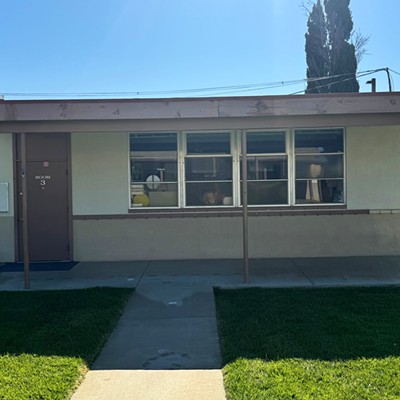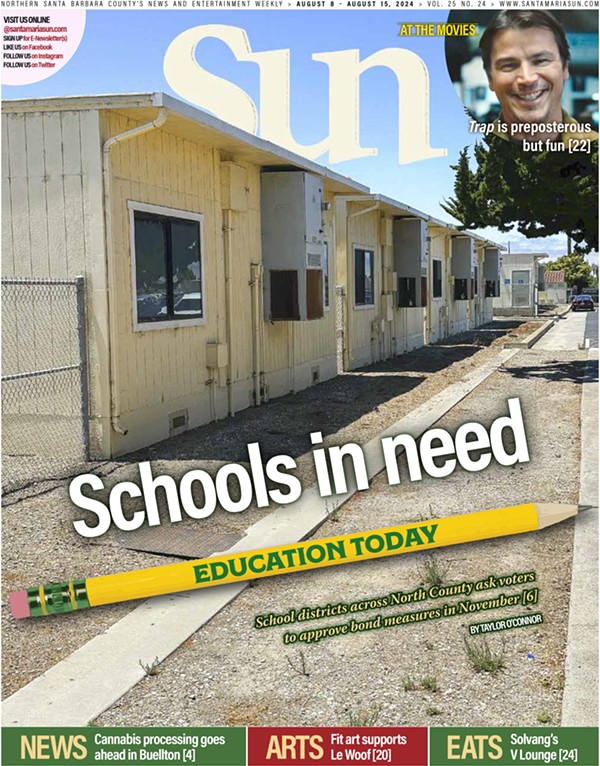• State Assemblymember Jordan Cunningham (R-San Luis Obispo) announced a bipartisan bill to increase access to financial literacy courses in high school, according to a Feb. 15 statement. California received an “F” in financial literacy instruction in a 2017 report commissioned by the Center for Financial Literacy at Champlain College in Vermont. “Many California kids are graduating high school knowing little-to-nothing about debt, compound interest, basic investing, or budgeting. To set them up for life success, we need to increase their knowledge of basic financial concepts,” Cunningham said in the statement. “This bill will increase the availability of financial literacy coursework in California high schools. Financial literacy is a building block of a well-rounded education, and will give our high schoolers skills that will serve them for their entire lives.” There isn’t a financial literacy graduation requirement in California; rather, districts are encouraged to incorporate financial literacy coursework into their economics curriculum. This bill would create a grant program to assist schools in the creation and administration of high-quality financial literacy curriculum.
• Second District Santa Barbara County Supervisor Gregg Hart was selected to lead the Los Angeles-San Diego-San Luis Obispo (LOSSAN) Rail Corridor Agency board to provide oversight of key initiatives for the agency’s annual business plan. The LOSSAN Agency is governed by an 11-member board composed of officials representing rail owners, operators, and planning agencies along the railways between San Diego and San Luis Obispo. Hart and Solana Beach City Councilmember Jewel Edson will specifically look at the annual business plans for fiscal years 2022-23 and 2023-24, including goals and objectives for the Pacific Surfliner inter-city rail service, as well as the budgets necessary to administer, promote, and operate the service. “I am honored to lead the LOSSAN Agency as the chairman of the board,” Hart said in a statement. “I look forward to working with my fellow board members, staff, and partner agencies to further restore the Pacific Surfliner service and advance projects that will benefit the LOSSAN rail corridor both now and in the future.”
• State Sen. Monique Limón (D-Santa Barbara) introduced the California Community Reinvestment Act (SB 1176)—which would increase lending and community development activity by banks and other financial institutions to low- and moderate-income communities and communities of color in California, according to a Feb. 17 statement. The current federal Community Reinvestment Act was passed by congress in 1977 to combat redlining: Refusing to loan to someone because they live in a low-income area or are deemed to be a financial risk. The new bill would establish a framework for evaluating the performance of state-regulated financial institutions in meeting the financial services of their communities. It also aims to protect Californians from discrimination and divestment from state-regulated financial institutions by establishing an explicit consideration of race and ethnicity during institutions’ performance evaluations—which the current federal Community Reinvestment Act lacks. “The concept of equity has rightfully been a focus of policymakers in recent years. In addition to policies around health, the workplace, climate, education, and many others, it is time for California to pursue equity in the financial services space,” Limón said in the statement. “I am introducing legislation to establish an obligation that our state-regulated financial institutions meet the needs of underserved communities and to create a framework that provides a public process for evaluating how these institutions are living up to that obligation. The state’s supervision of financial institutions cannot focus only on safety and soundness, but must also consider the needs of all Californians, including people of all racial and ethnic groups, people with low or moderate incomes, and people living in rural areas.”









